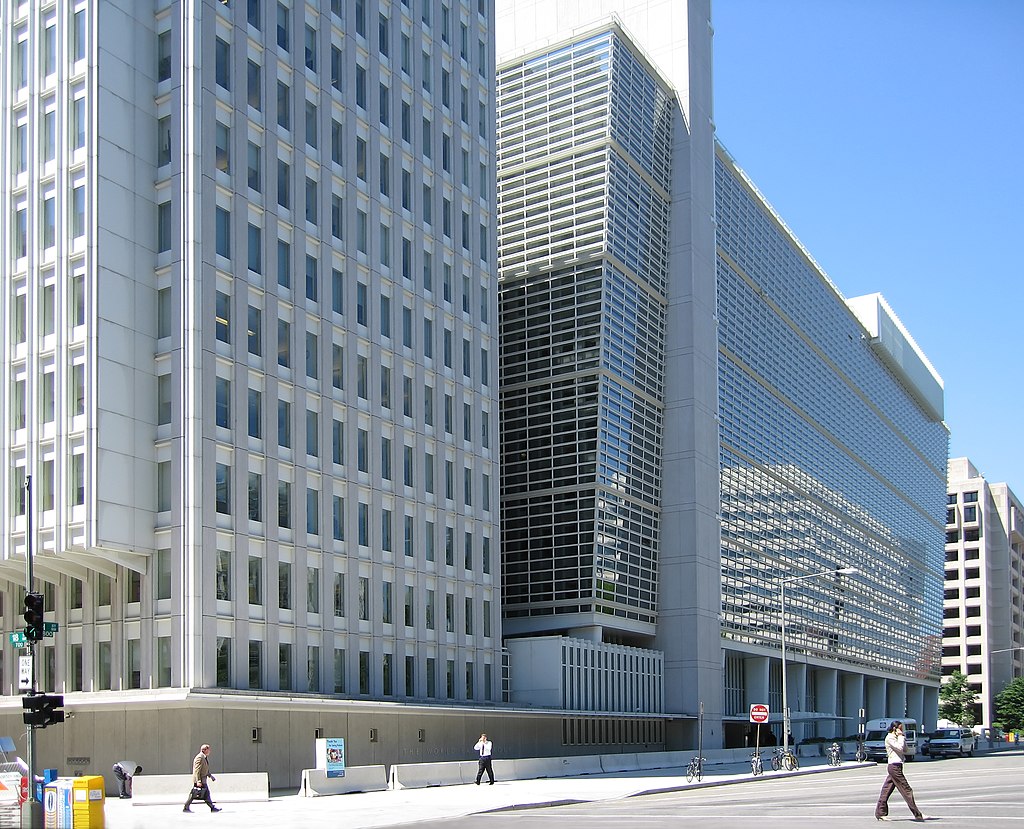Rising Debt and Economic Challenges
The World Bank has released a concerning report highlighting that the 26 poorest countries, which are home to 40% of the world's most impoverished people, are facing their highest debt levels since 2006. These nations are now more vulnerable to natural disasters and economic shocks, exacerbating their poverty levels.
Economic Decline Amid Global Recovery
Despite the broader world recovering from the COVID-19 pandemic, these economies are, on average, poorer than before the crisis. With per-capita incomes below $1,145, they are increasingly dependent on International Development Association (IDA) grants and low-interest loans. The average debt-to-GDP ratio for these countries\ has reached a staggering 72%, marking an 18-year high.
Geopolitical Instability and Investment Challenges
Many of these countries are situated in sub-Saharan Africa, including Ethiopia, Chad, and Congo, as well as Afghanistan and Yemen. Approximately two-thirds of these nations are embroiled in conflict or struggle with social instability, deterring foreign investment and trapping them in economic cycles of boom and bust.
The Role of the IDA
World Bank chief economist Indermit Gill emphasized the importance of IDA as a lifeline for these nations amid global neglect. The IDA aims to raise $100 billion by December 6, building on the record $93 billion raised in 2021.
Urgent Need for Investment and Self-Sufficiency
Natural disasters have increasingly impacted these economies, averaging annual losses of 2% of GDP from 2011 to 2023—five times that of lower-middle-income countries. The report urges these nations to enhance tax collection and improve public spending efficiency to foster resilience and sustainability.



 Asian Stocks Slip as Tech Rout Deepens, Japan Steadies Ahead of Election
Asian Stocks Slip as Tech Rout Deepens, Japan Steadies Ahead of Election  RBI Holds Repo Rate at 5.25% as India’s Growth Outlook Strengthens After U.S. Trade Deal
RBI Holds Repo Rate at 5.25% as India’s Growth Outlook Strengthens After U.S. Trade Deal  Japan Economy Poised for Q4 2025 Growth as Investment and Consumption Hold Firm
Japan Economy Poised for Q4 2025 Growth as Investment and Consumption Hold Firm  Trump Endorses Japan’s Sanae Takaichi Ahead of Crucial Election Amid Market and China Tensions
Trump Endorses Japan’s Sanae Takaichi Ahead of Crucial Election Amid Market and China Tensions  Gold and Silver Prices Slide as Dollar Strength and Easing Tensions Weigh on Metals
Gold and Silver Prices Slide as Dollar Strength and Easing Tensions Weigh on Metals  Global Markets Slide as AI, Crypto, and Precious Metals Face Heightened Volatility
Global Markets Slide as AI, Crypto, and Precious Metals Face Heightened Volatility  Asian Markets Slip as AI Spending Fears Shake Tech, Wall Street Futures Rebound
Asian Markets Slip as AI Spending Fears Shake Tech, Wall Street Futures Rebound  Trump Lifts 25% Tariff on Indian Goods in Strategic U.S.–India Trade and Energy Deal
Trump Lifts 25% Tariff on Indian Goods in Strategic U.S.–India Trade and Energy Deal  Australia’s December Trade Surplus Expands but Falls Short of Expectations
Australia’s December Trade Surplus Expands but Falls Short of Expectations  U.S. Stock Futures Edge Higher as Tech Rout Deepens on AI Concerns and Earnings
U.S. Stock Futures Edge Higher as Tech Rout Deepens on AI Concerns and Earnings  South Korea’s Weak Won Struggles as Retail Investors Pour Money Into U.S. Stocks
South Korea’s Weak Won Struggles as Retail Investors Pour Money Into U.S. Stocks  Bank of Japan Signals Readiness for Near-Term Rate Hike as Inflation Nears Target
Bank of Japan Signals Readiness for Near-Term Rate Hike as Inflation Nears Target  Silver Prices Plunge in Asian Trade as Dollar Strength Triggers Fresh Precious Metals Sell-Off
Silver Prices Plunge in Asian Trade as Dollar Strength Triggers Fresh Precious Metals Sell-Off  Dollar Near Two-Week High as Stock Rout, AI Concerns and Global Events Drive Market Volatility
Dollar Near Two-Week High as Stock Rout, AI Concerns and Global Events Drive Market Volatility  Thailand Inflation Remains Negative for 10th Straight Month in January
Thailand Inflation Remains Negative for 10th Straight Month in January  U.S.-India Trade Framework Signals Major Shift in Tariffs, Energy, and Supply Chains
U.S.-India Trade Framework Signals Major Shift in Tariffs, Energy, and Supply Chains  Vietnam’s Trade Surplus With US Jumps as Exports Surge and China Imports Hit Record
Vietnam’s Trade Surplus With US Jumps as Exports Surge and China Imports Hit Record 





























